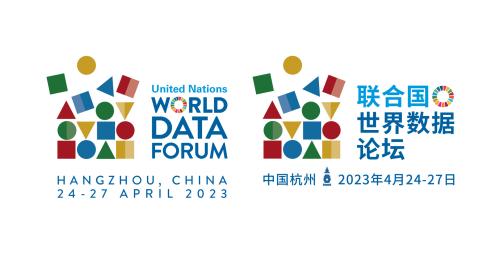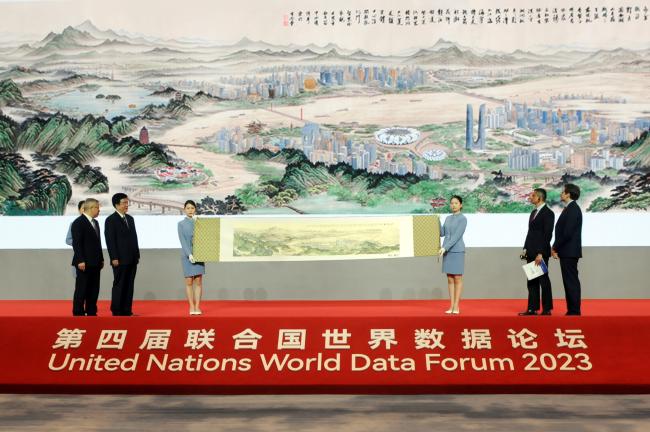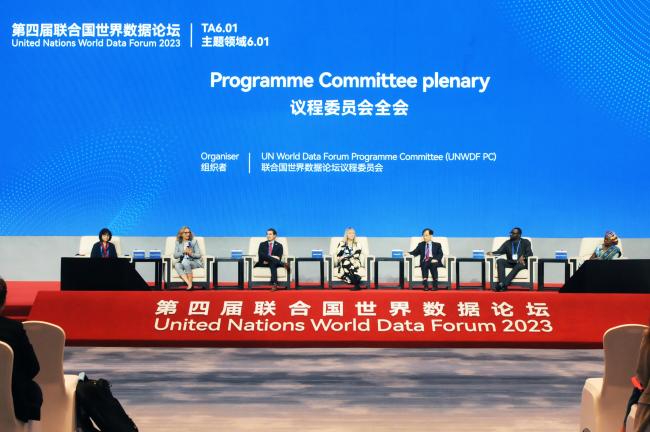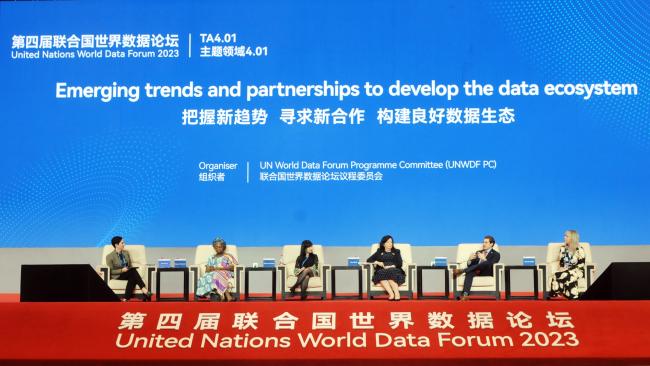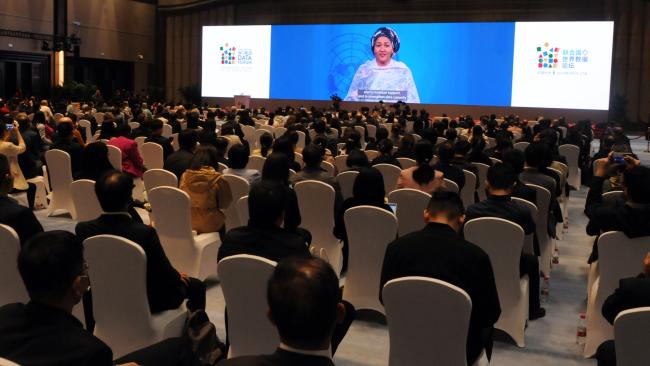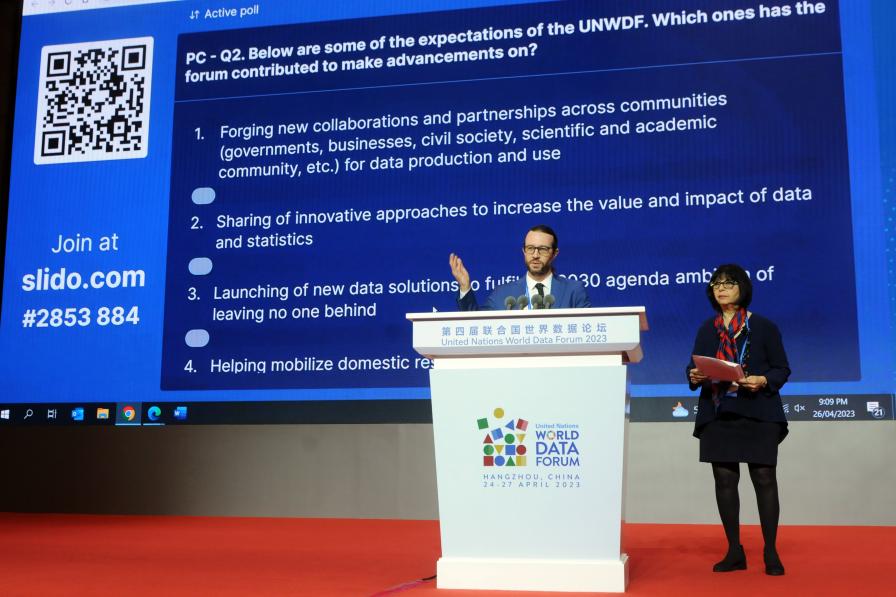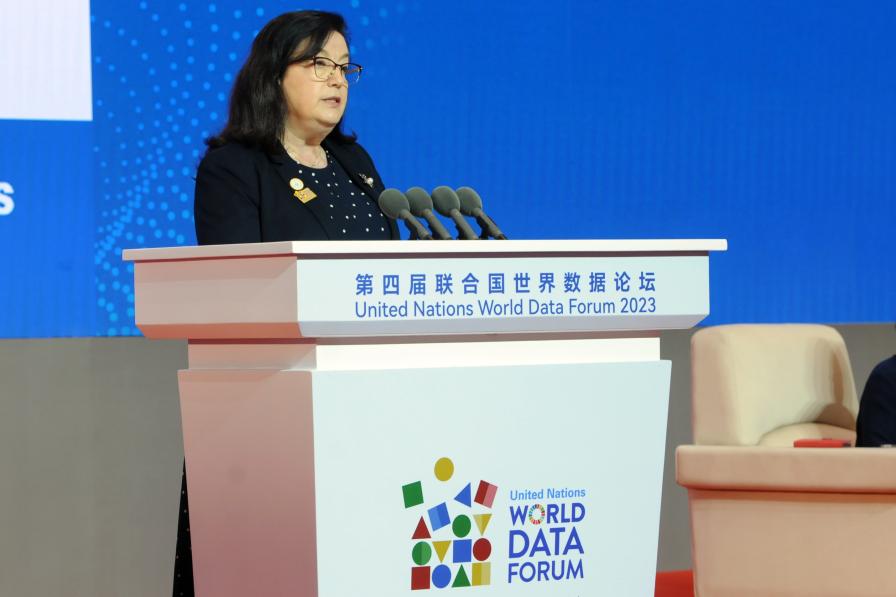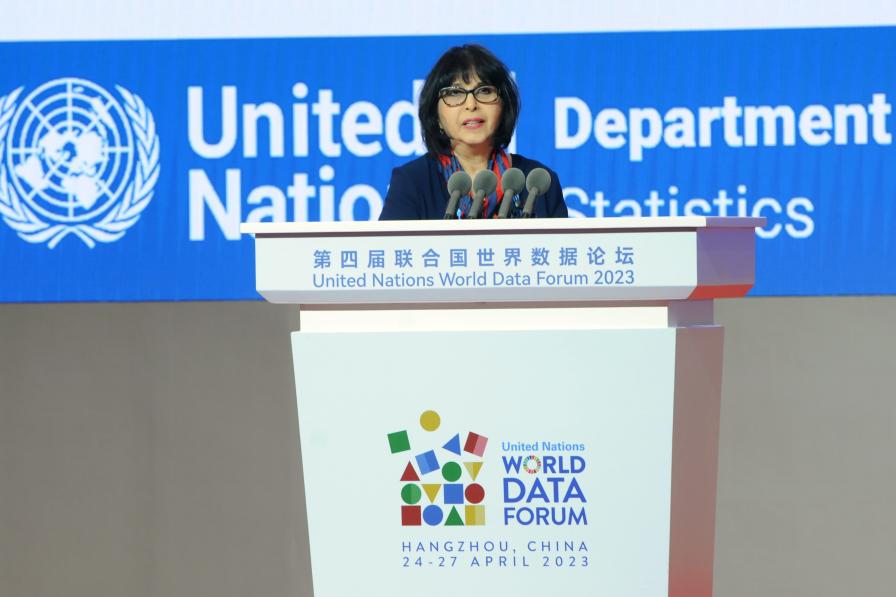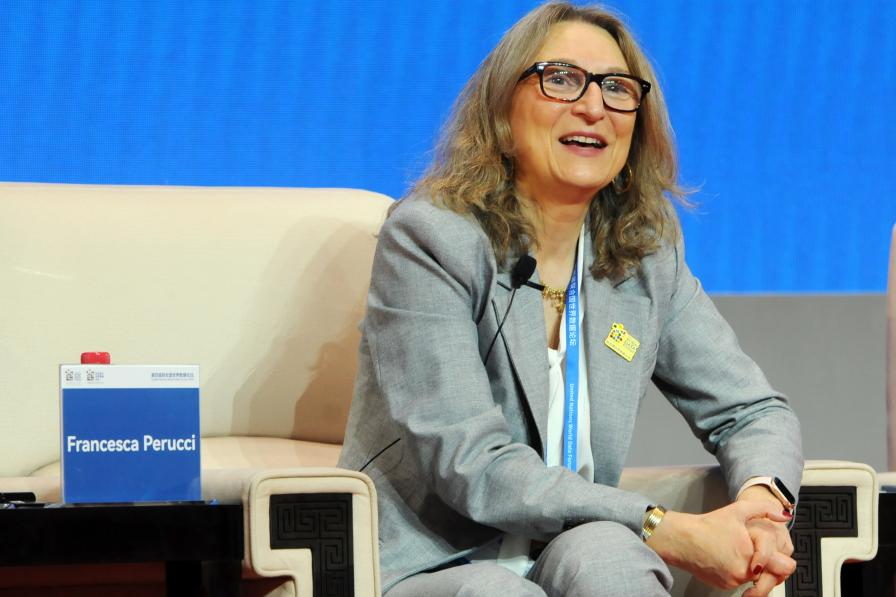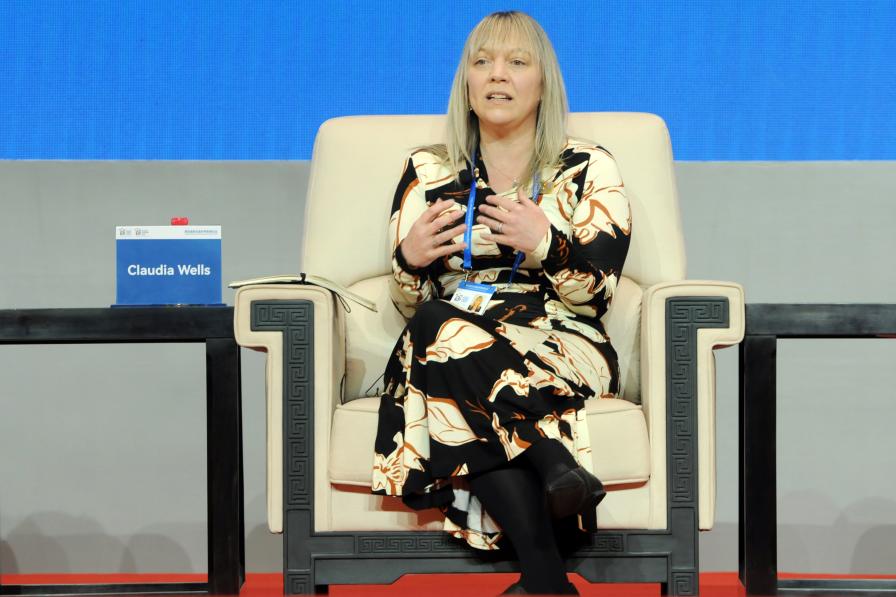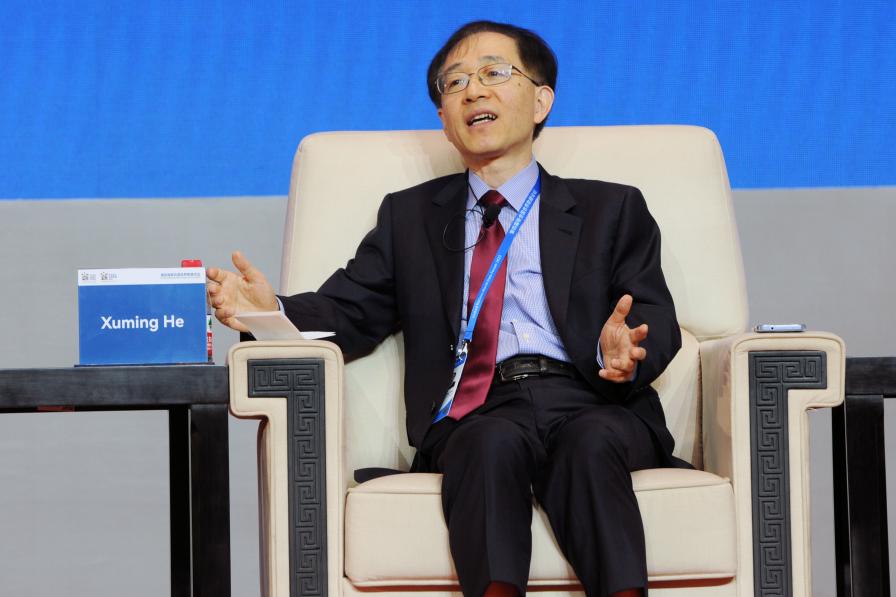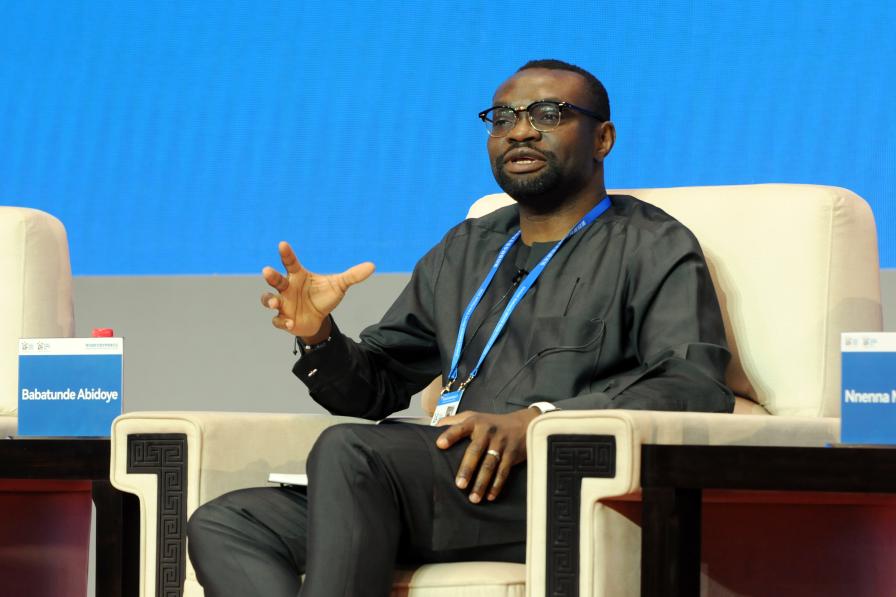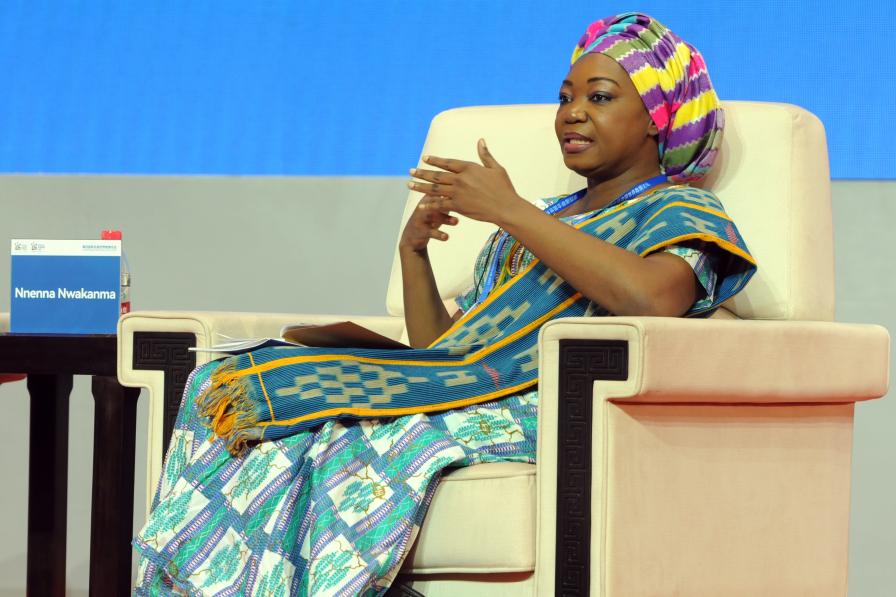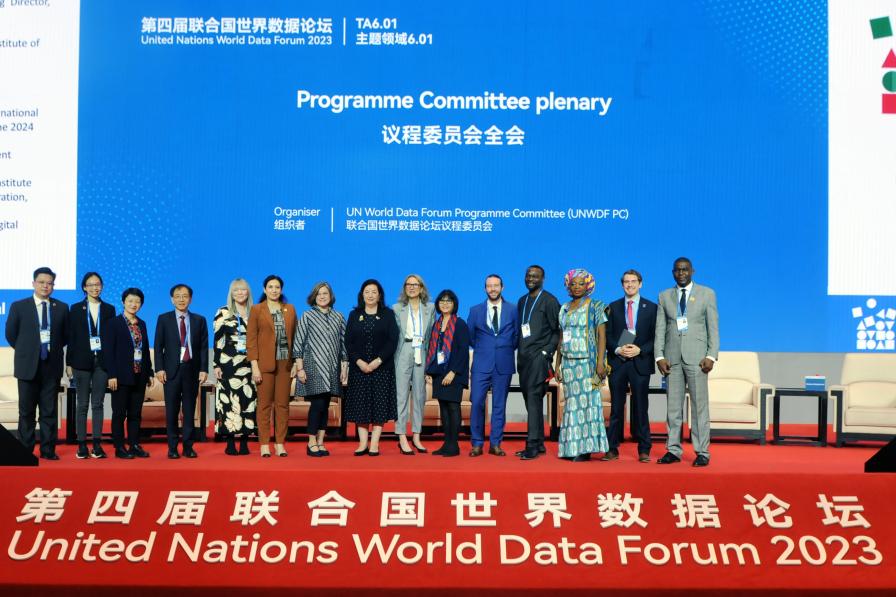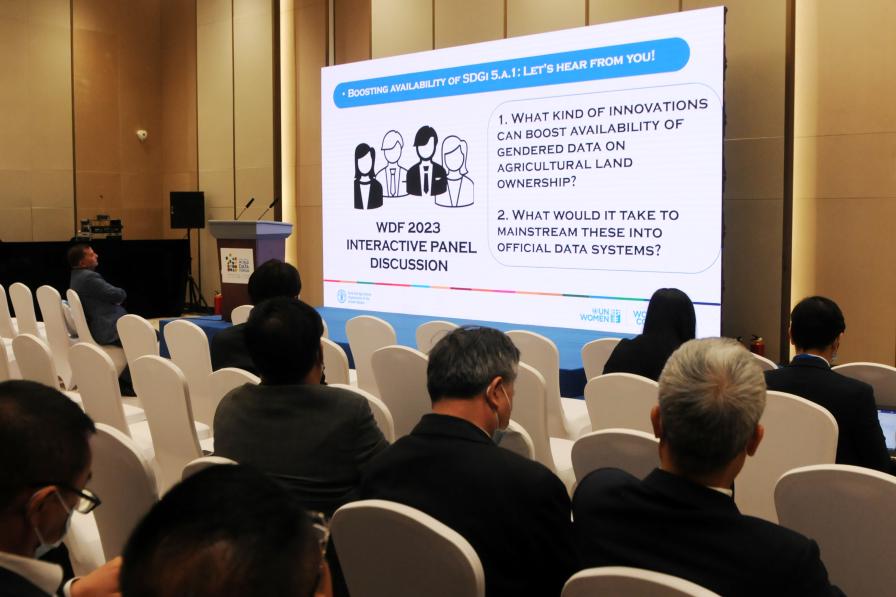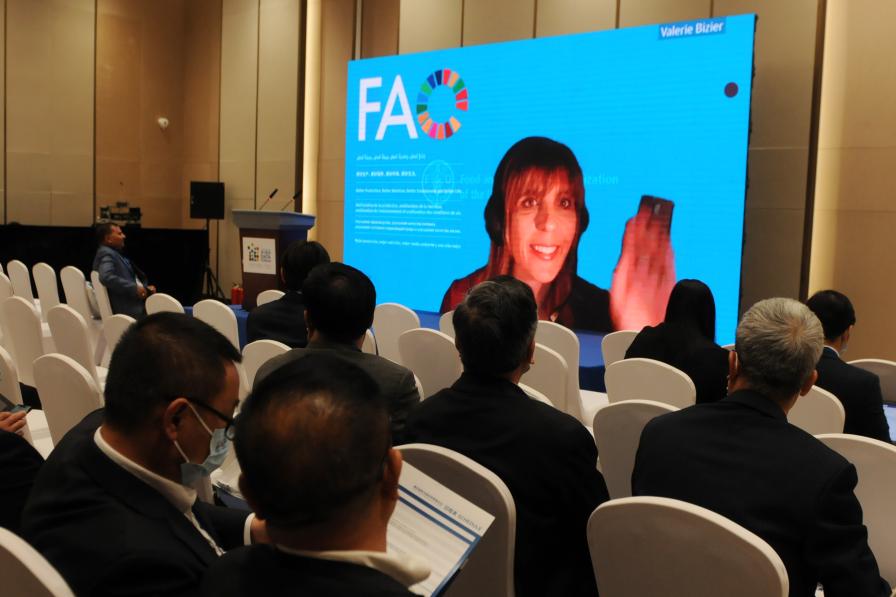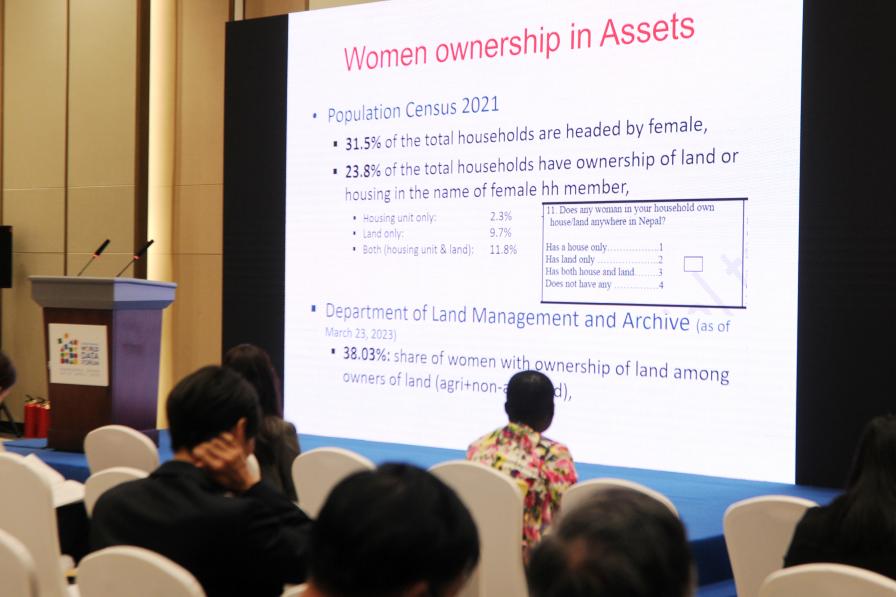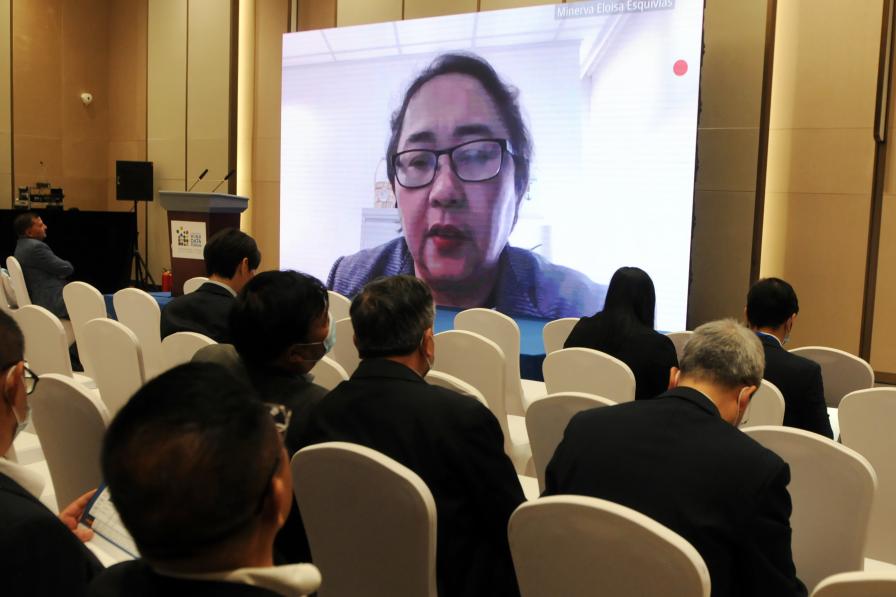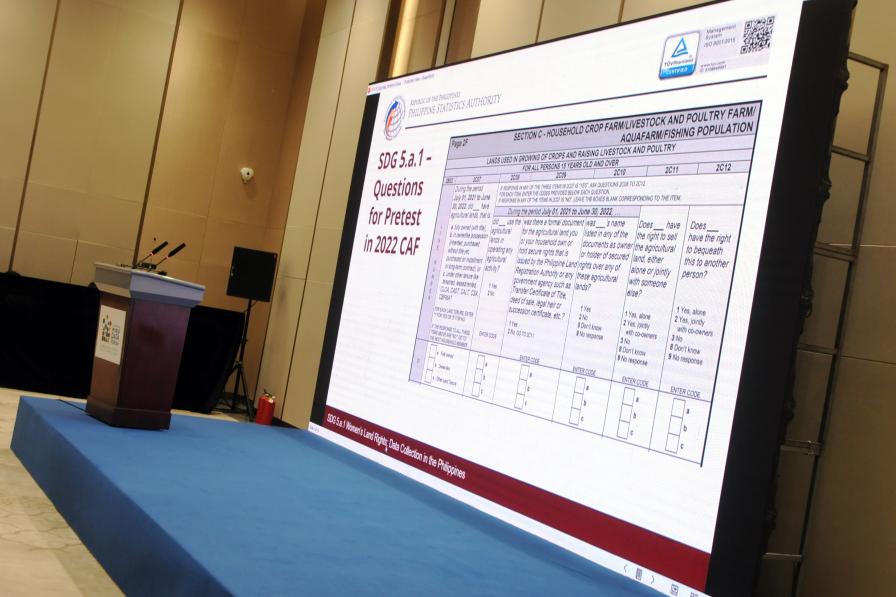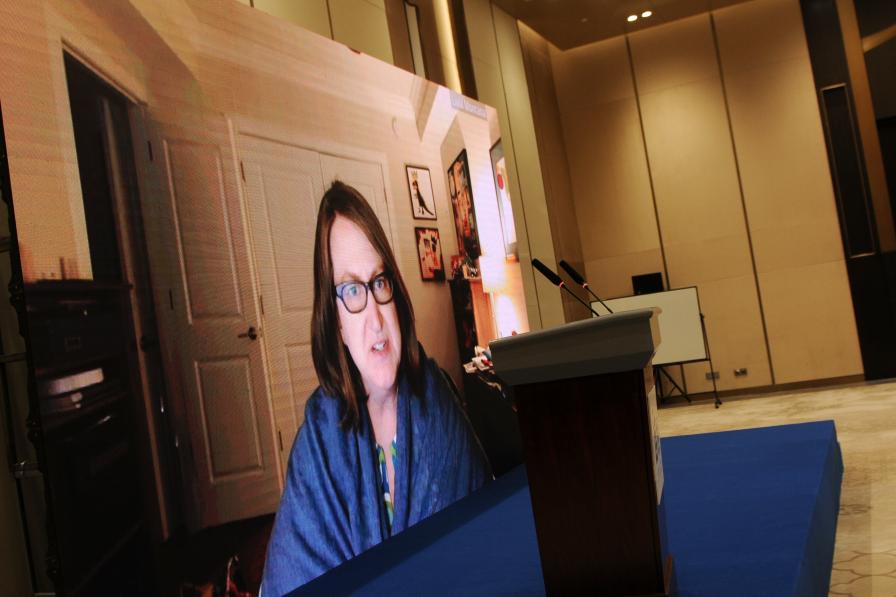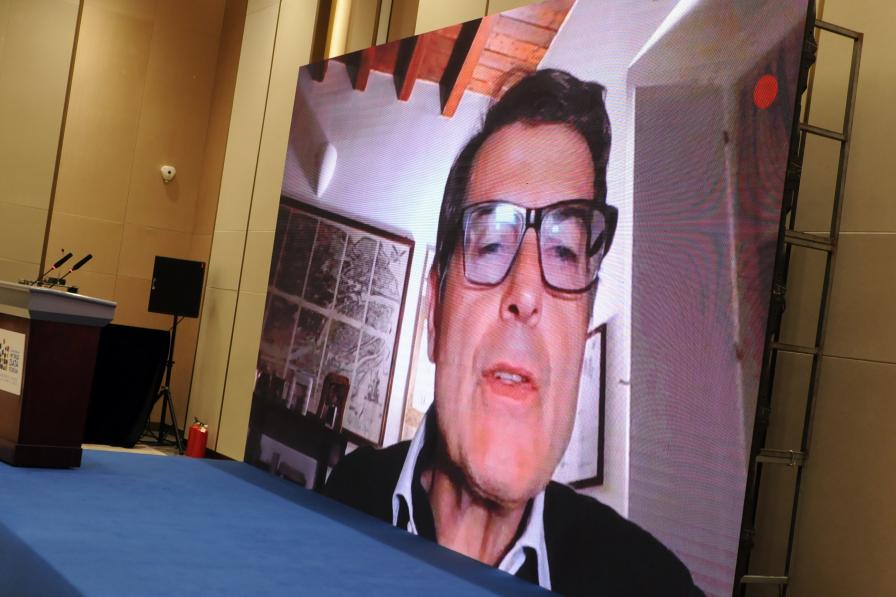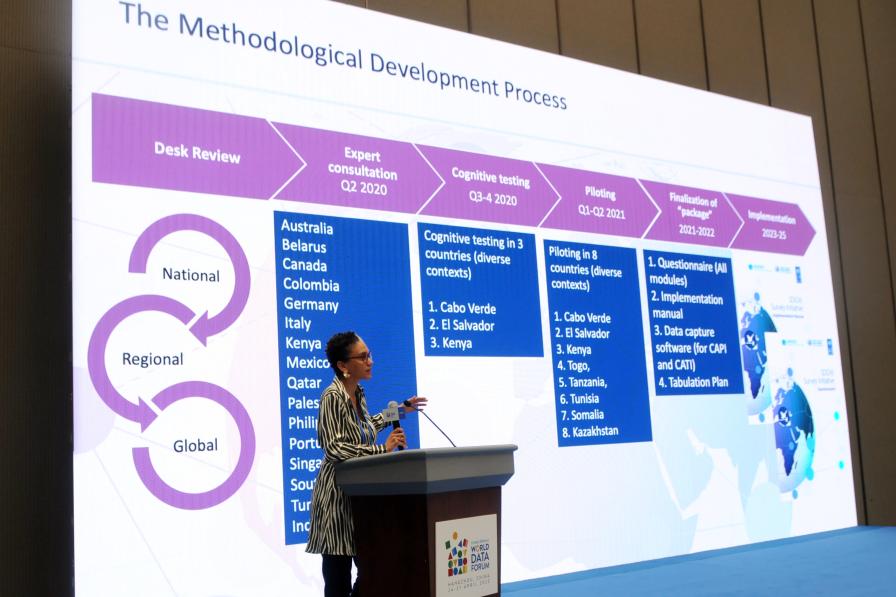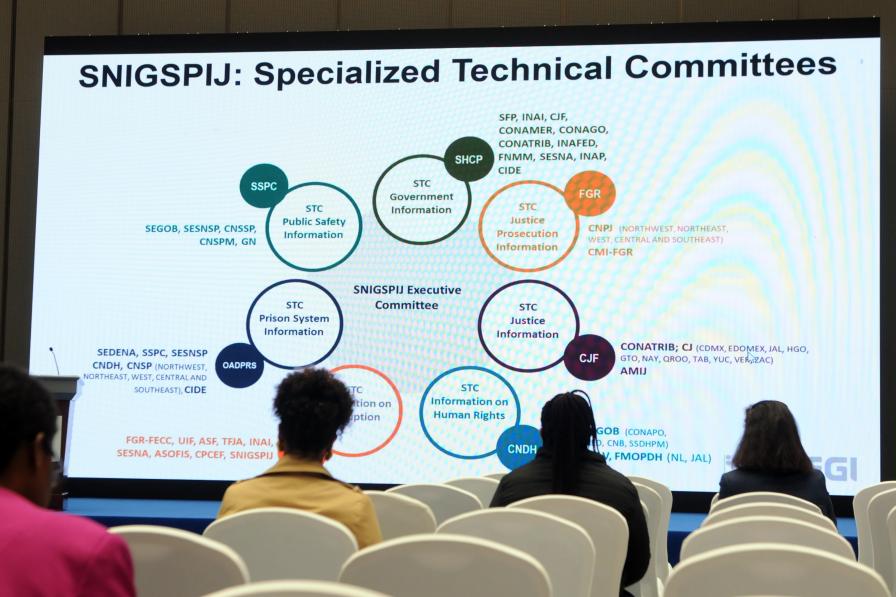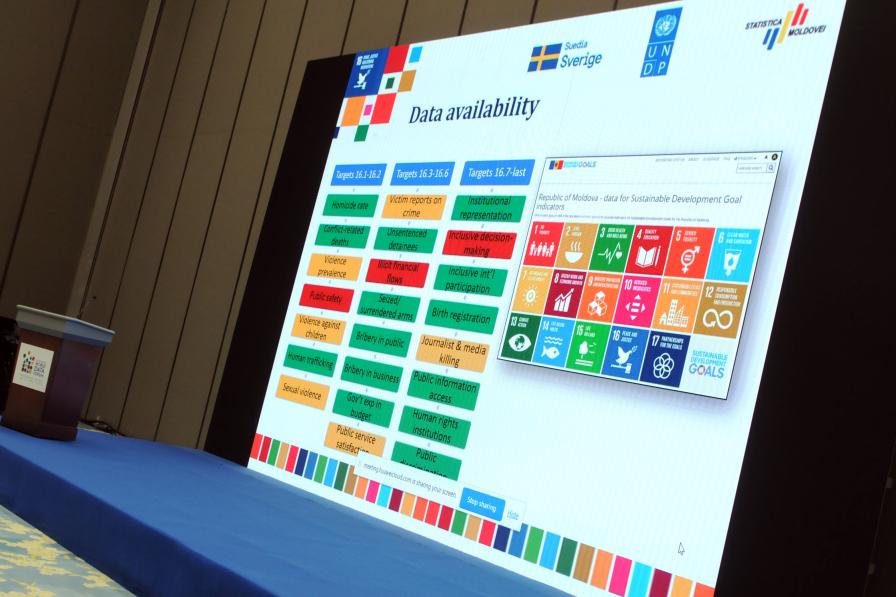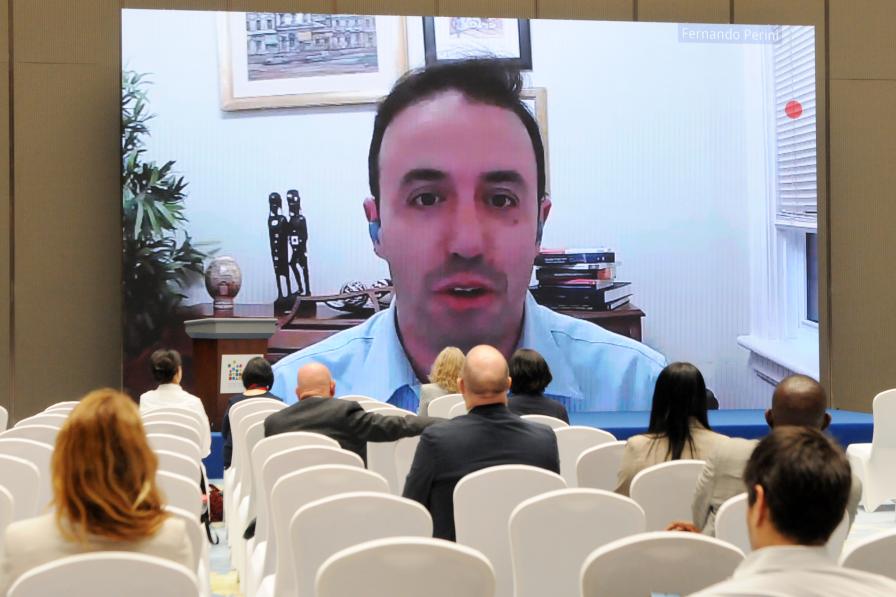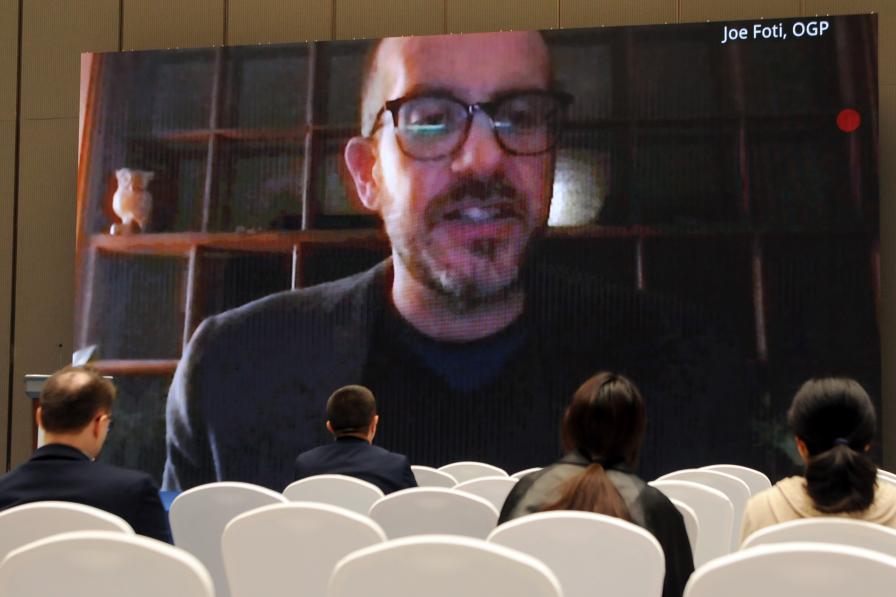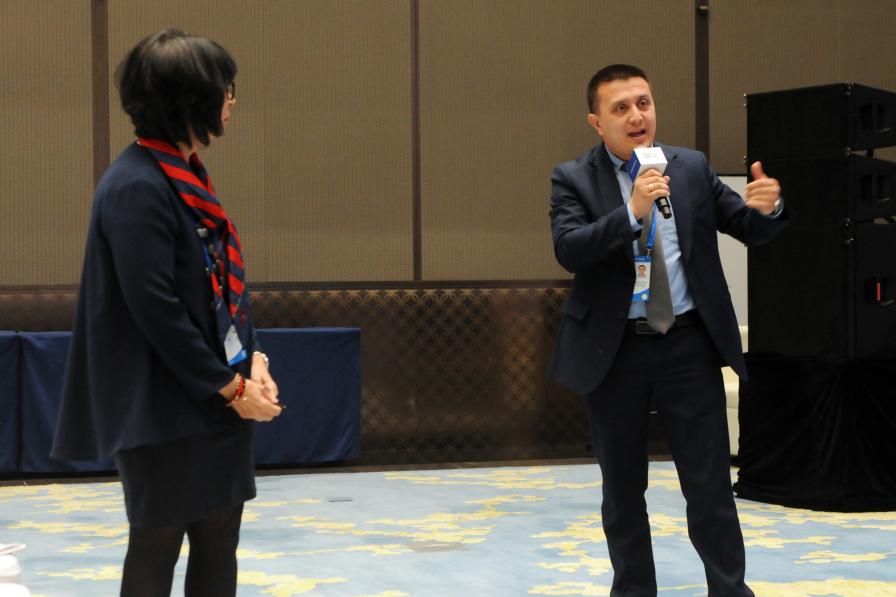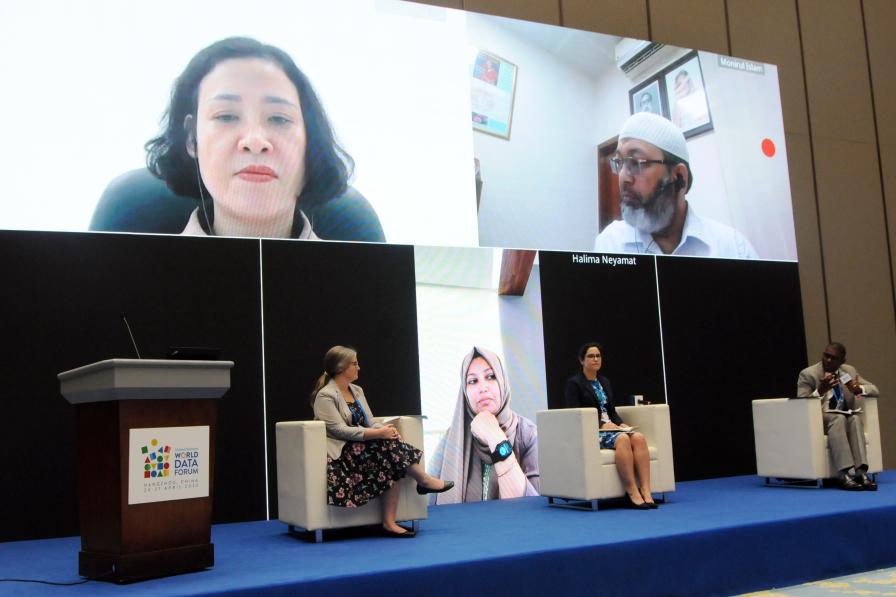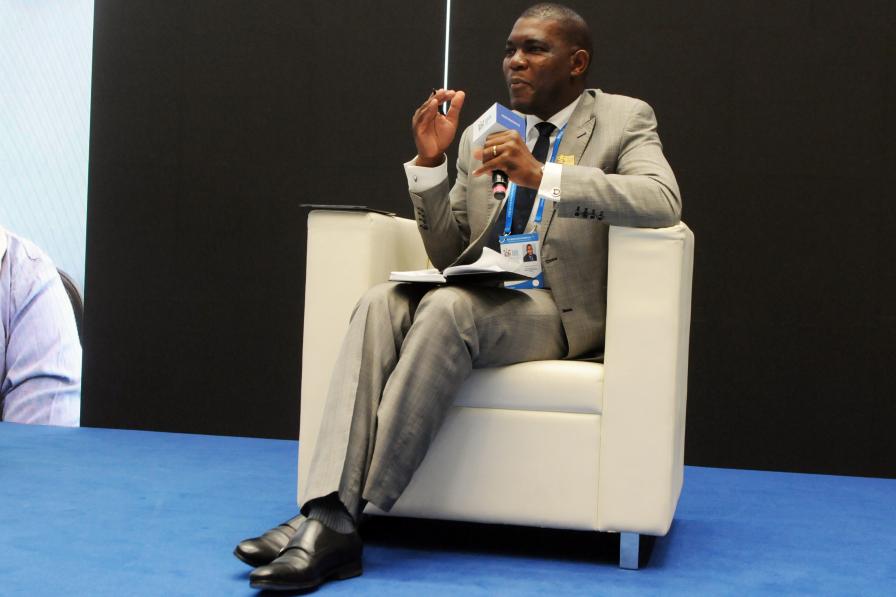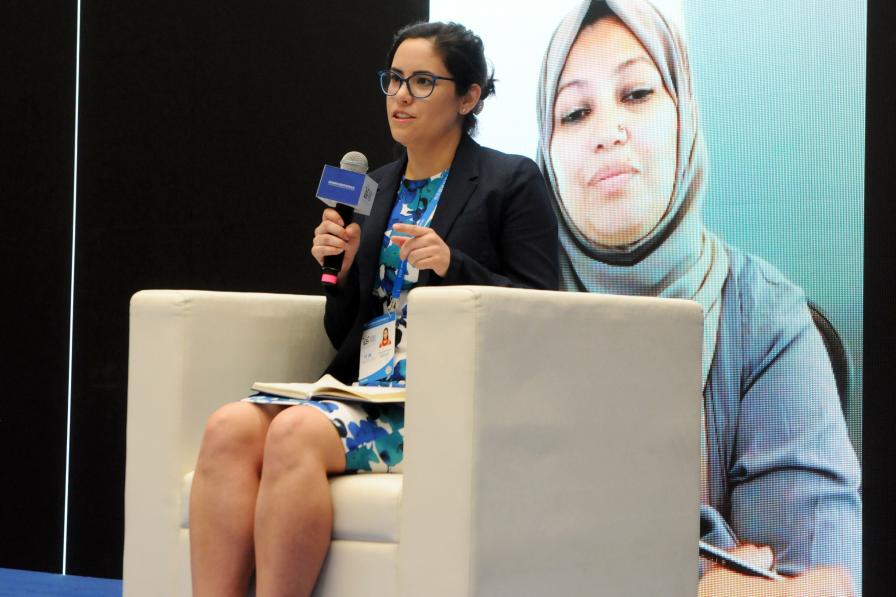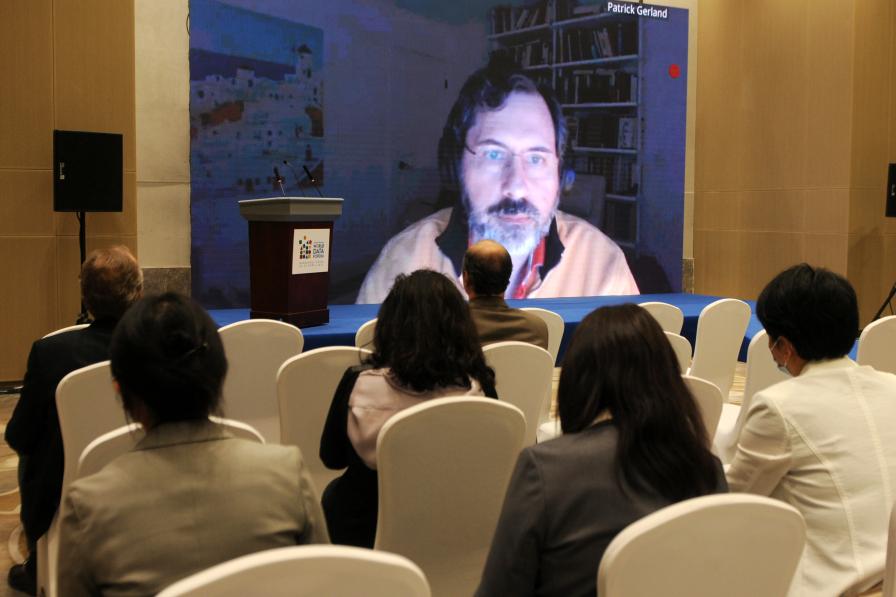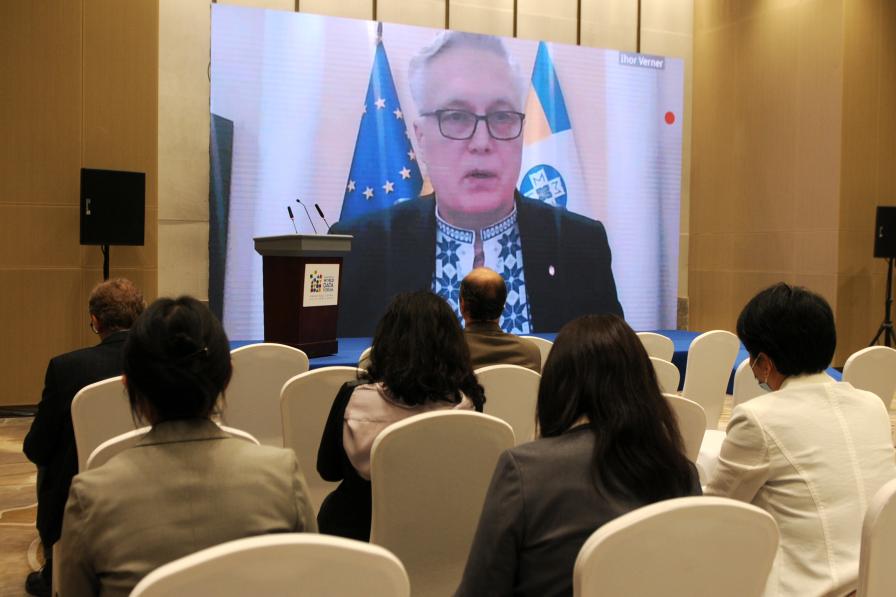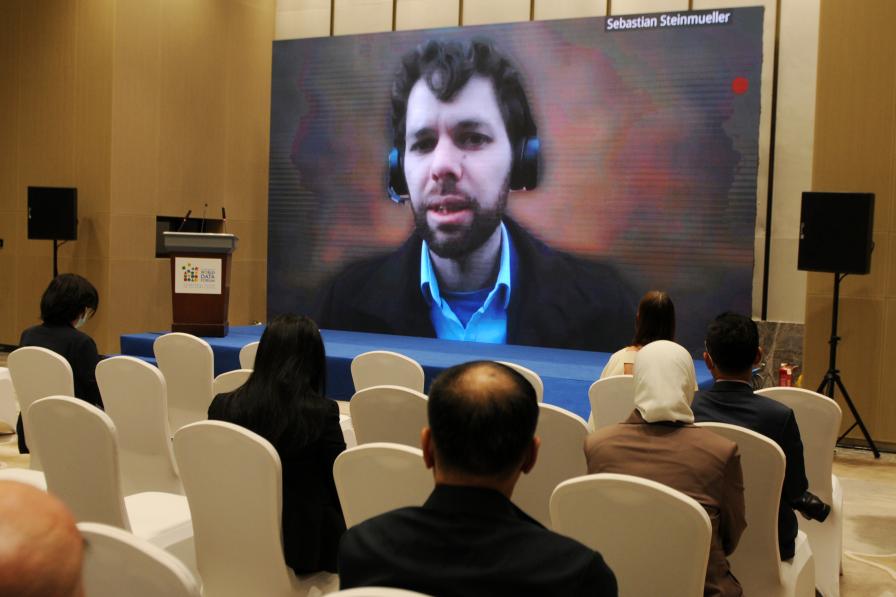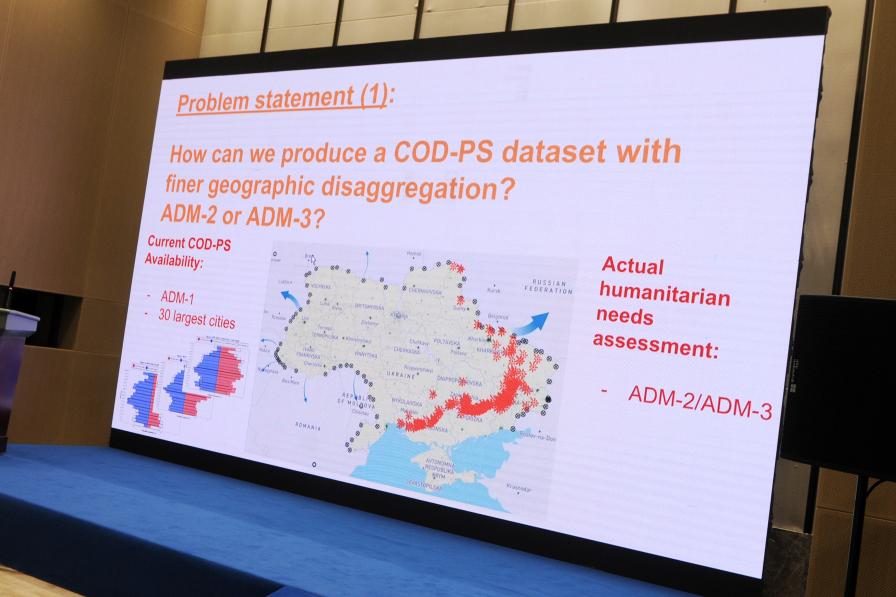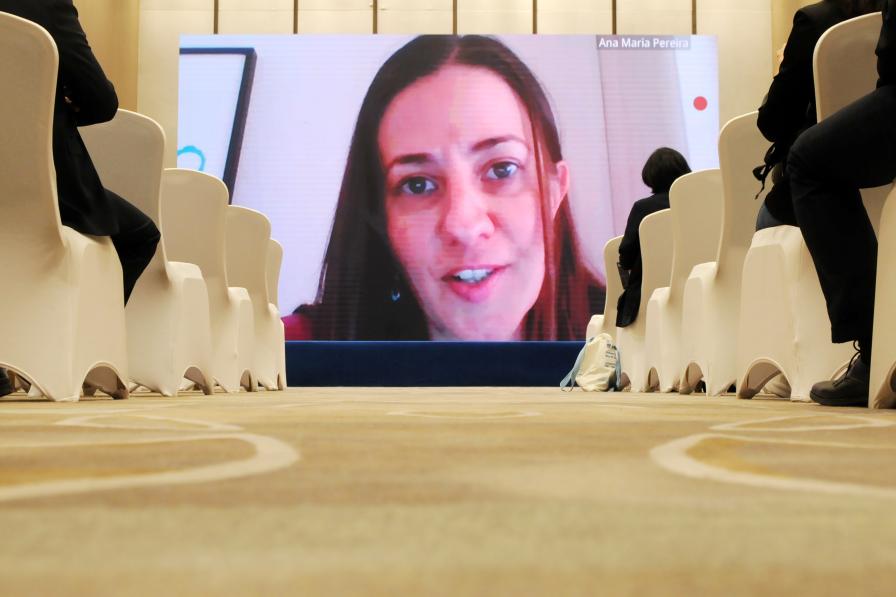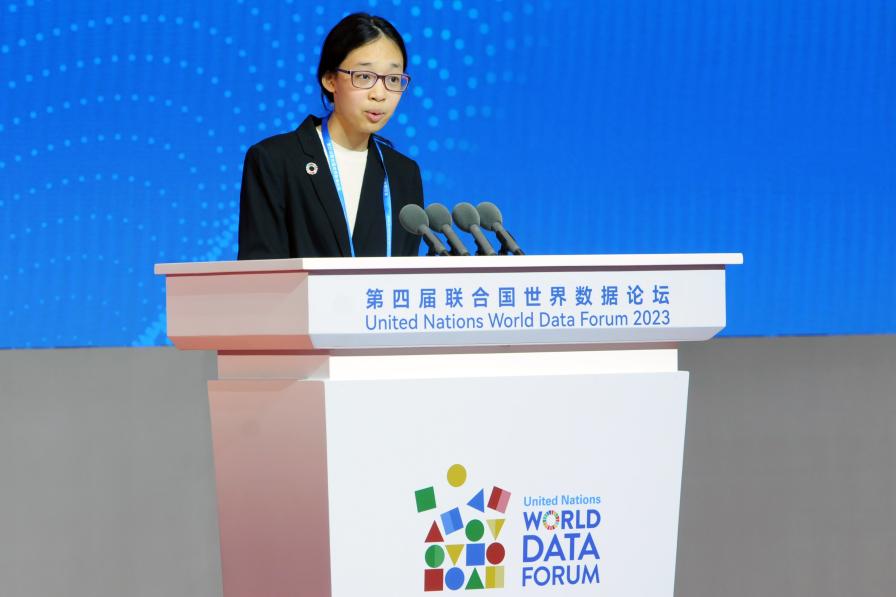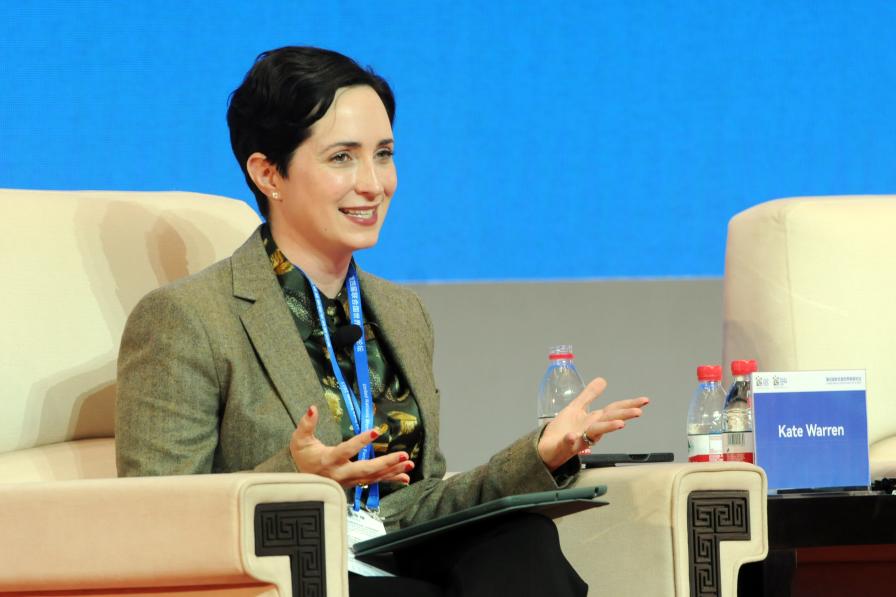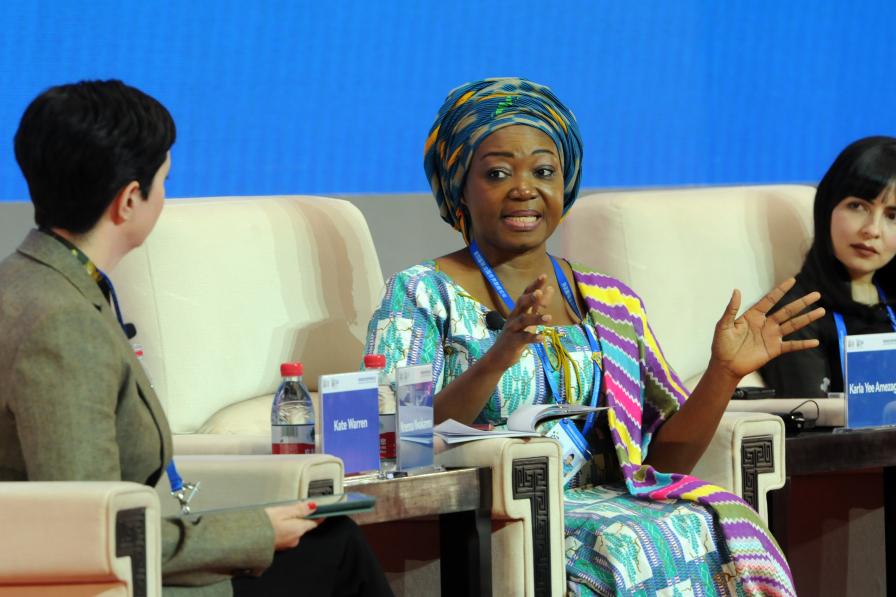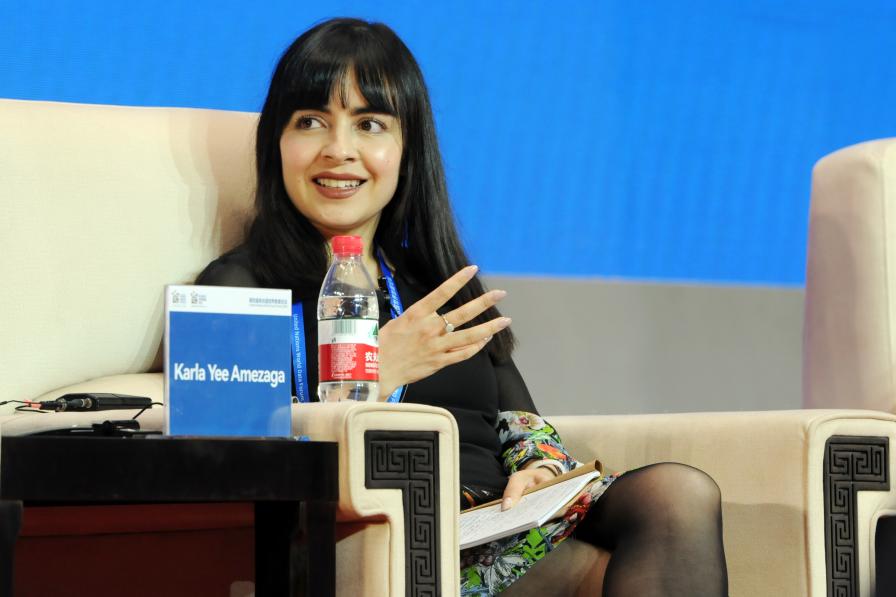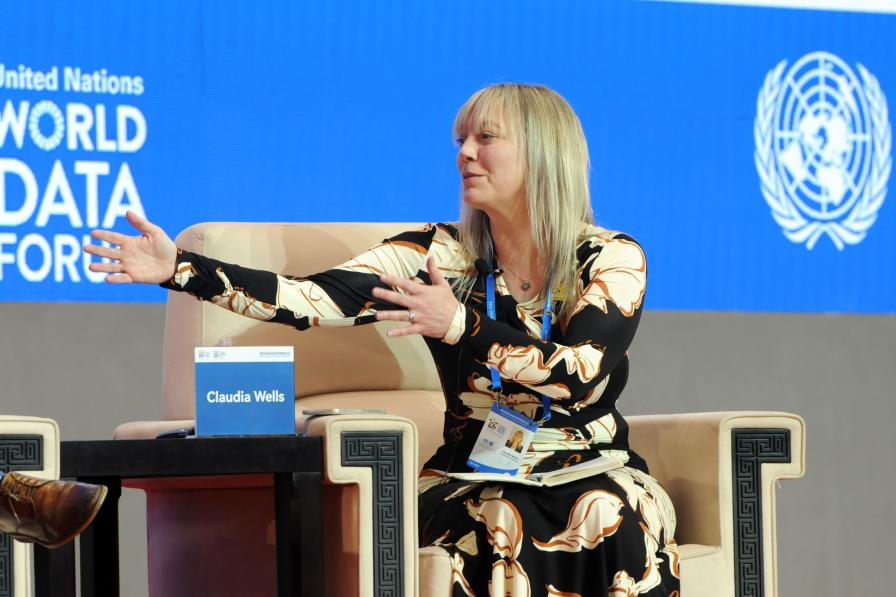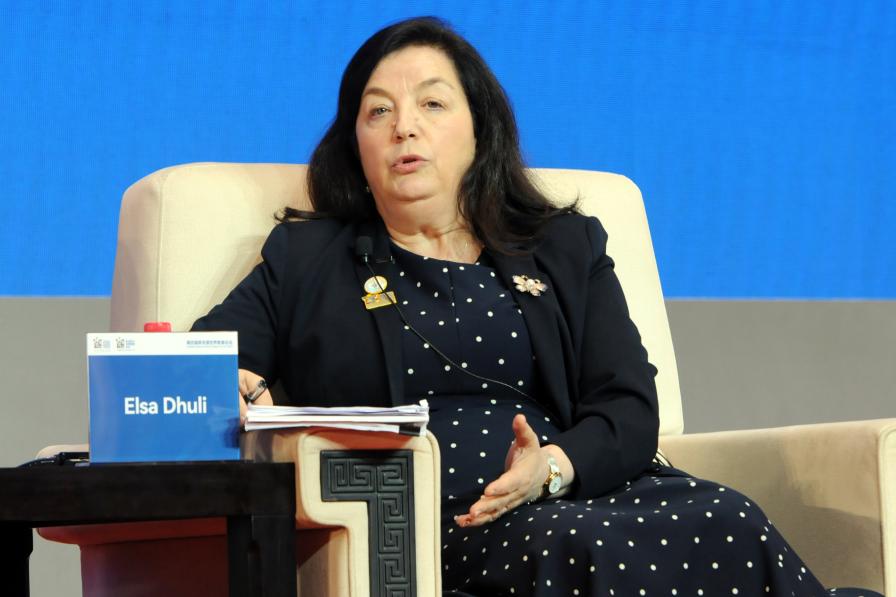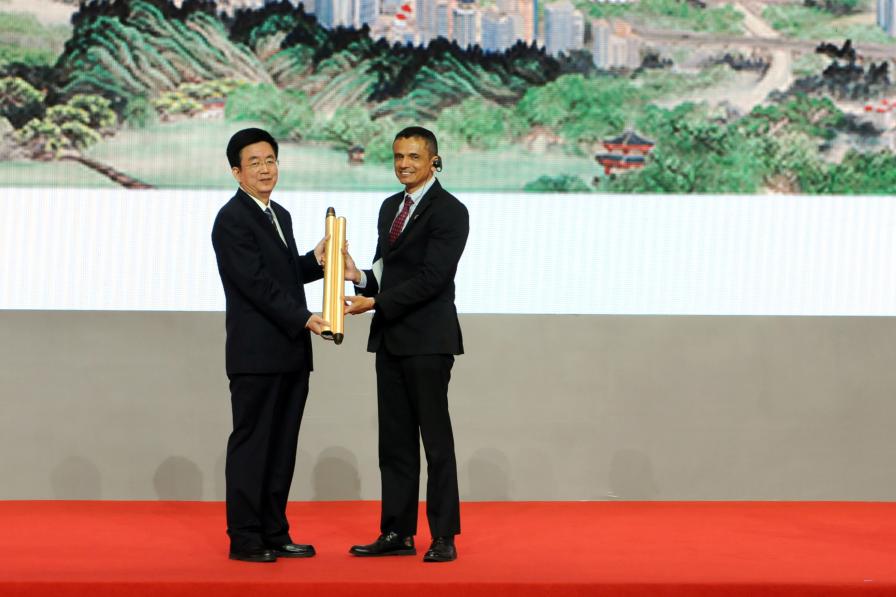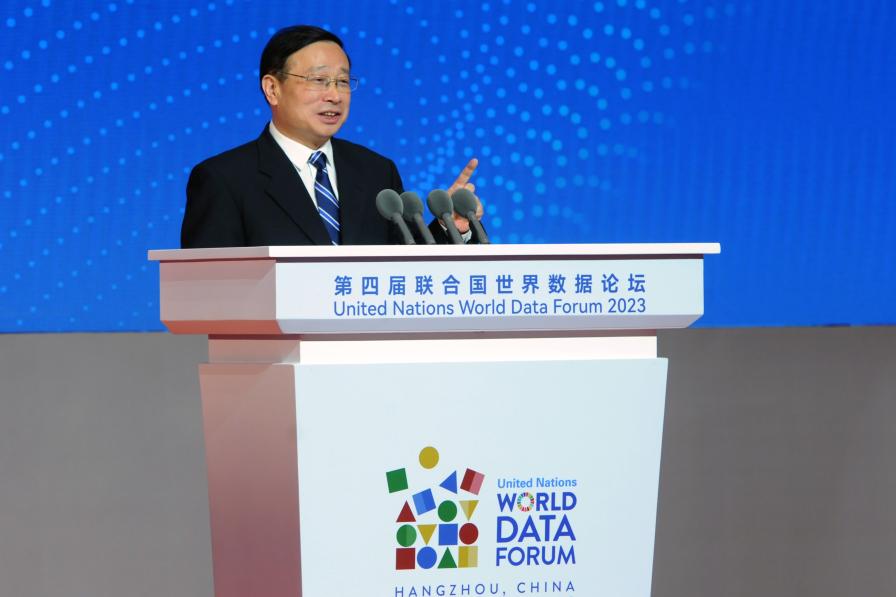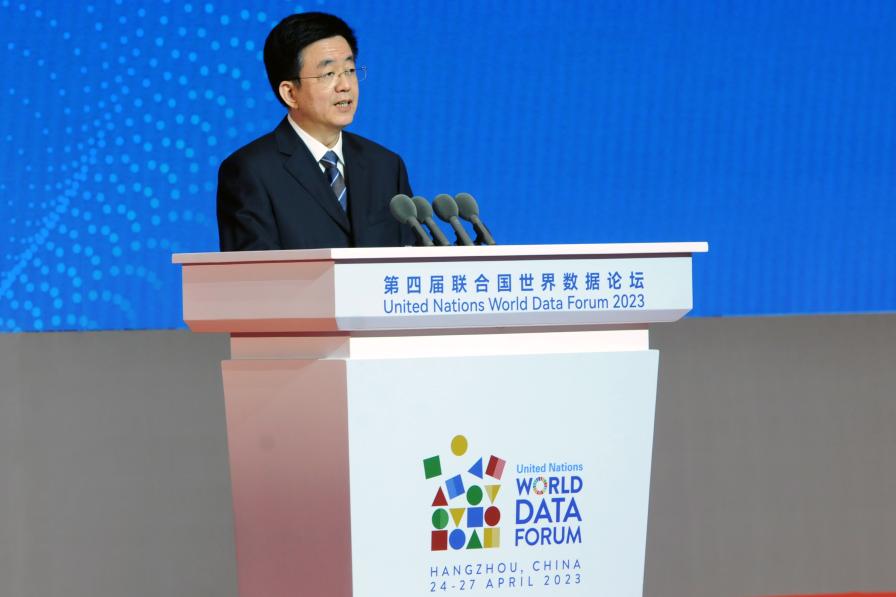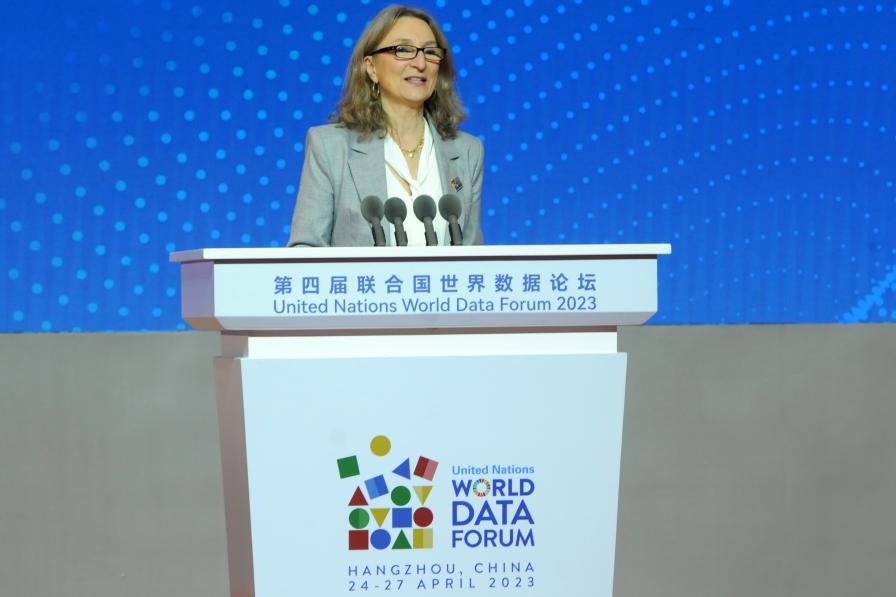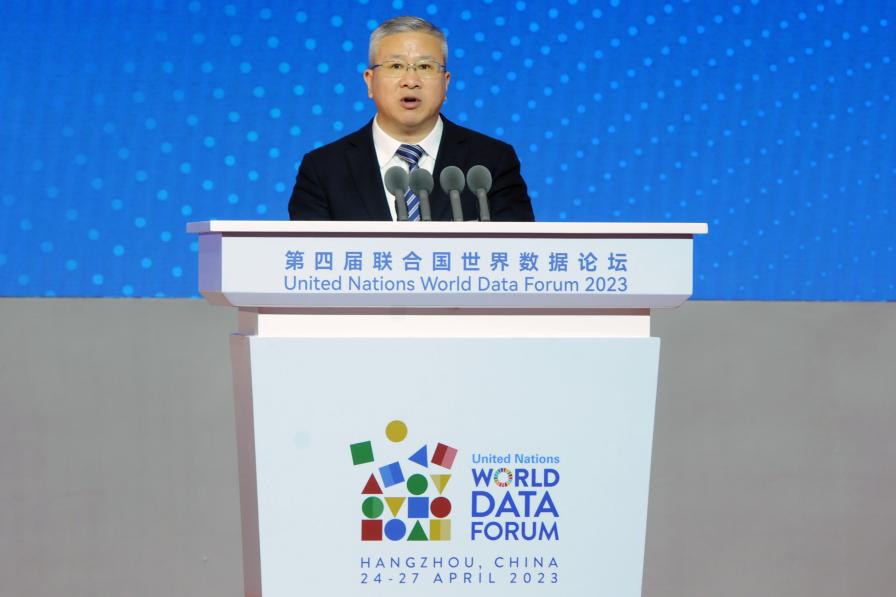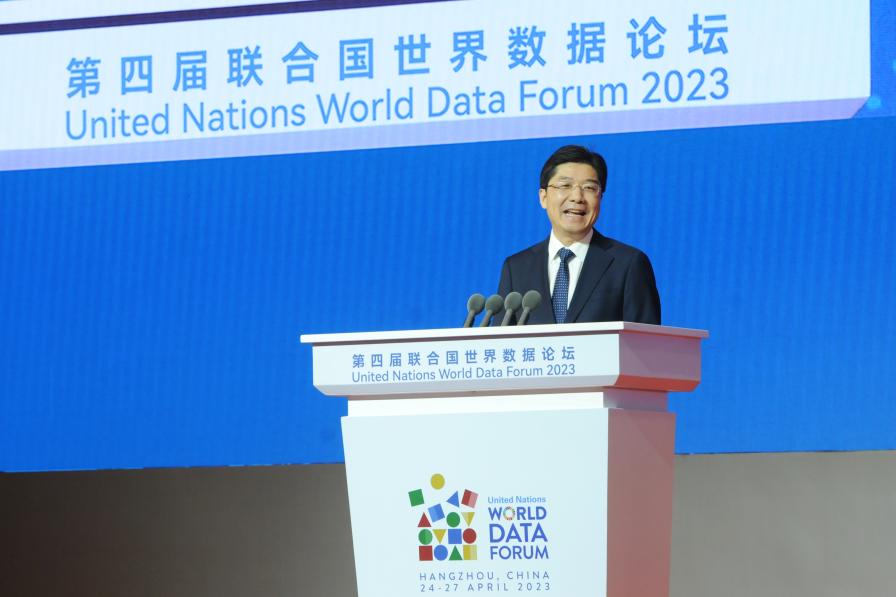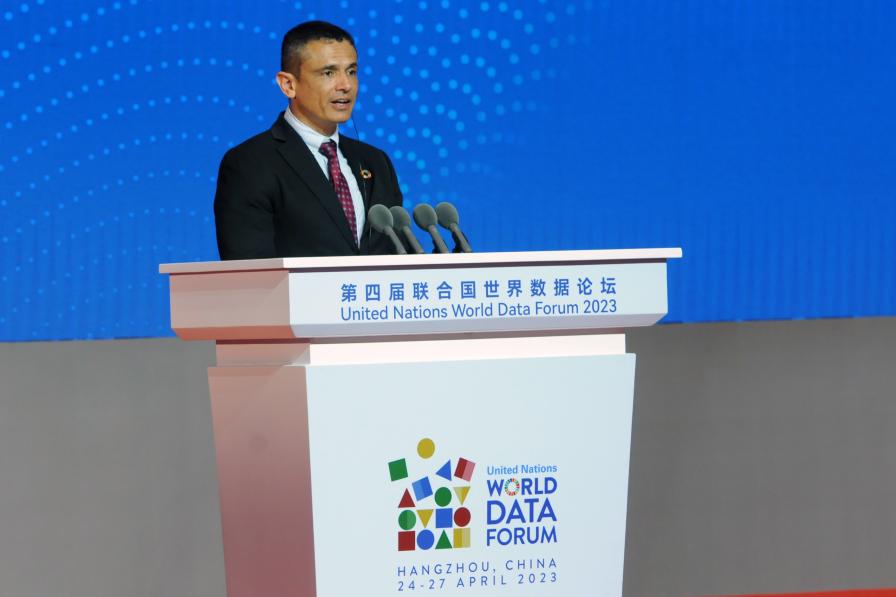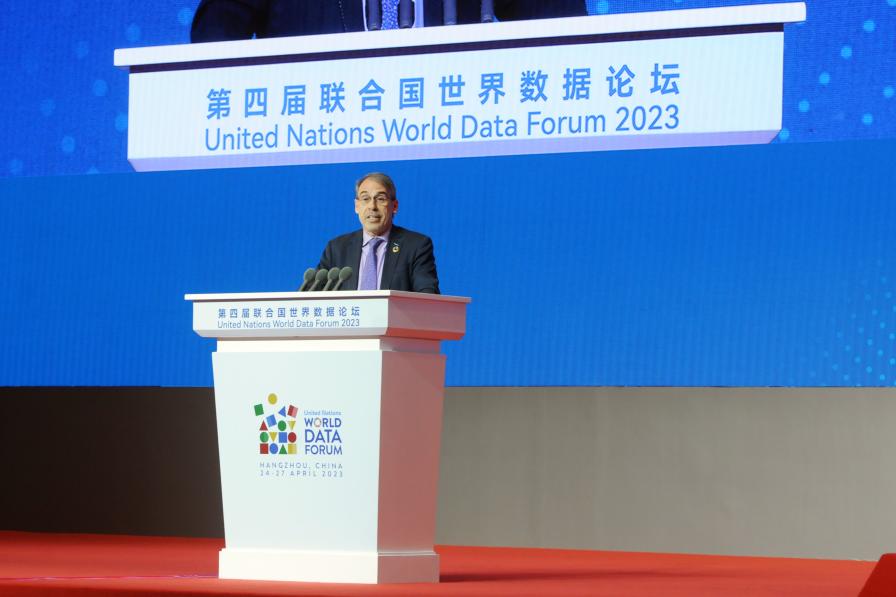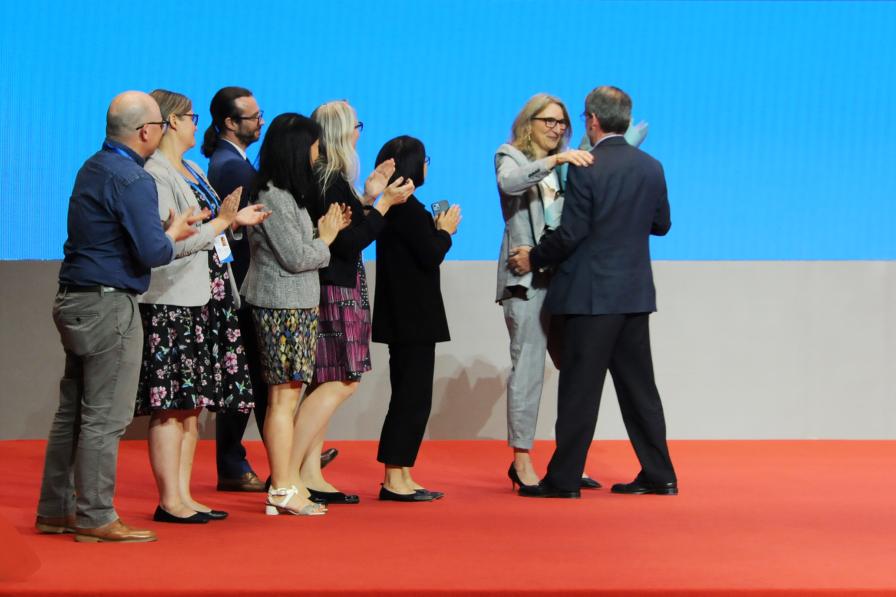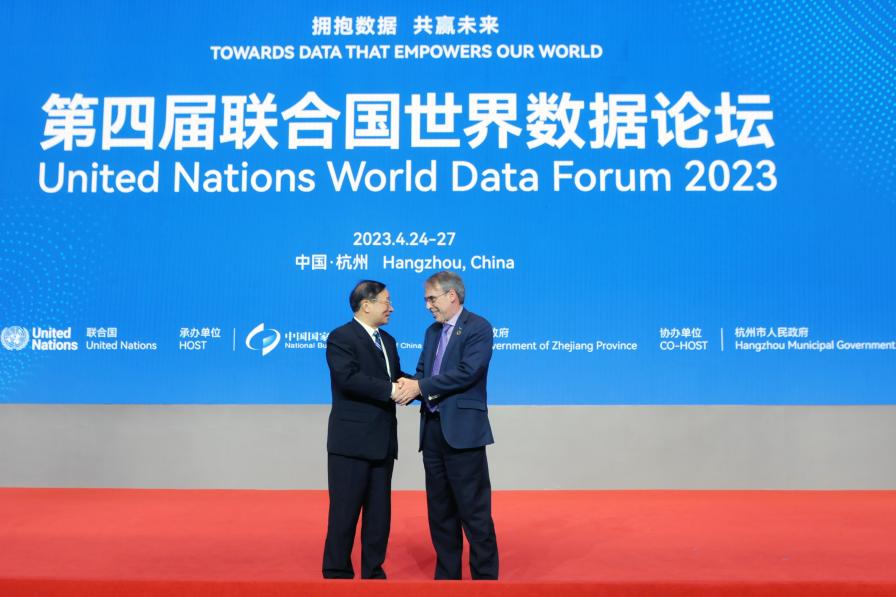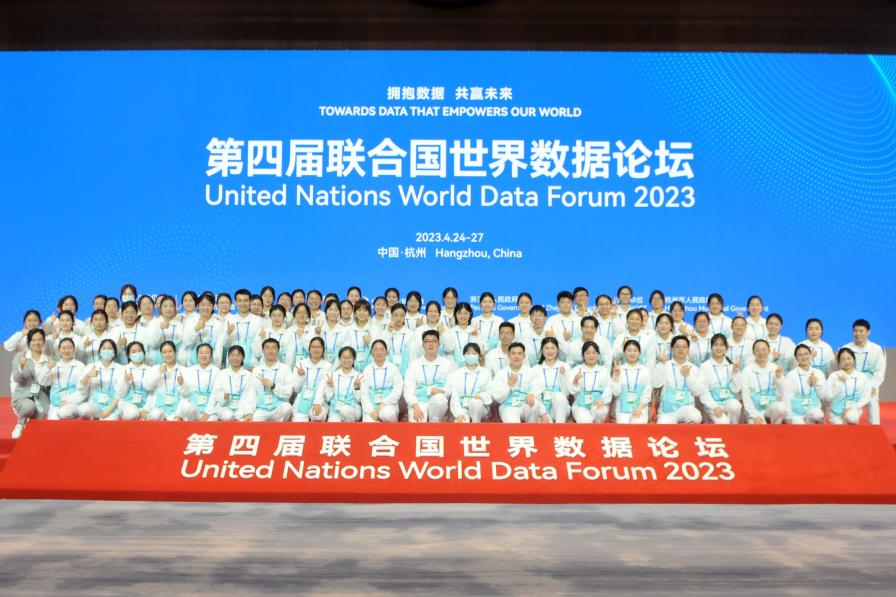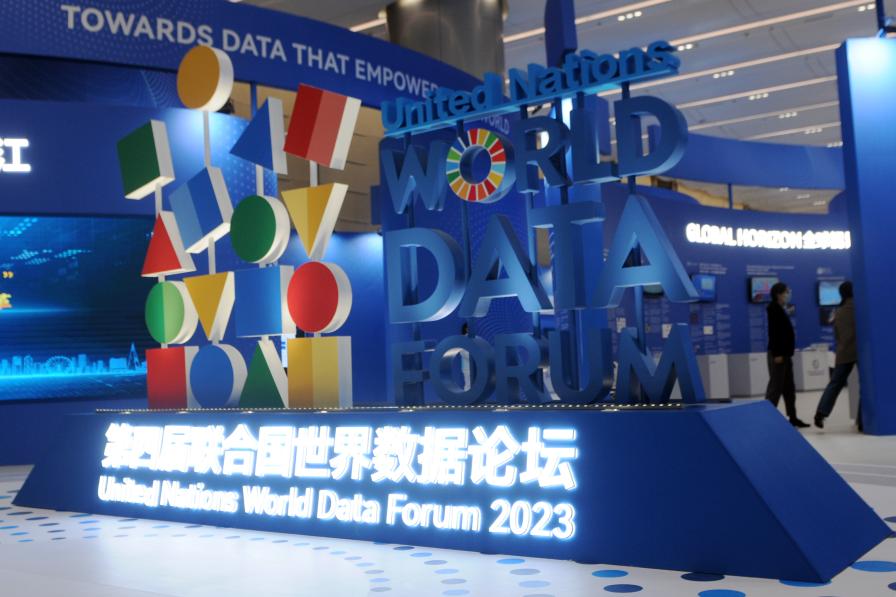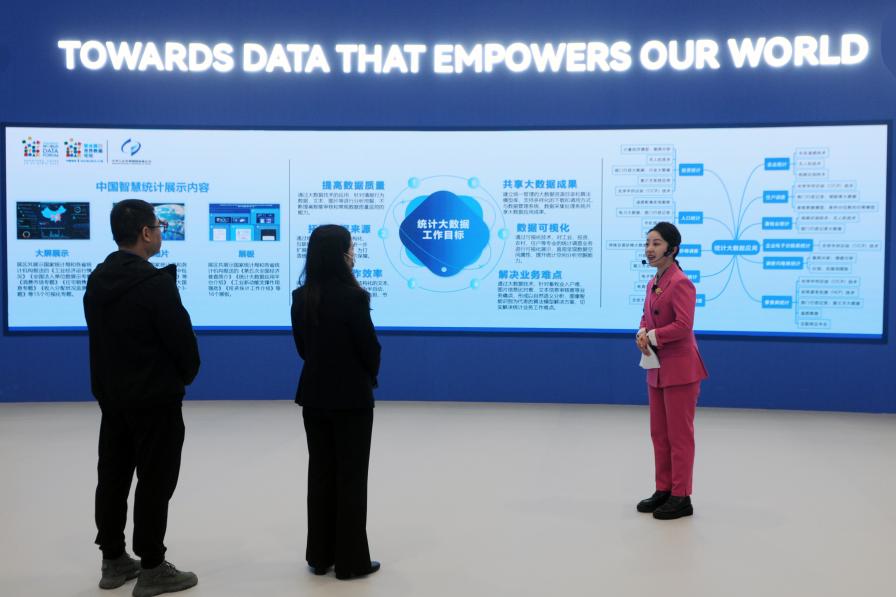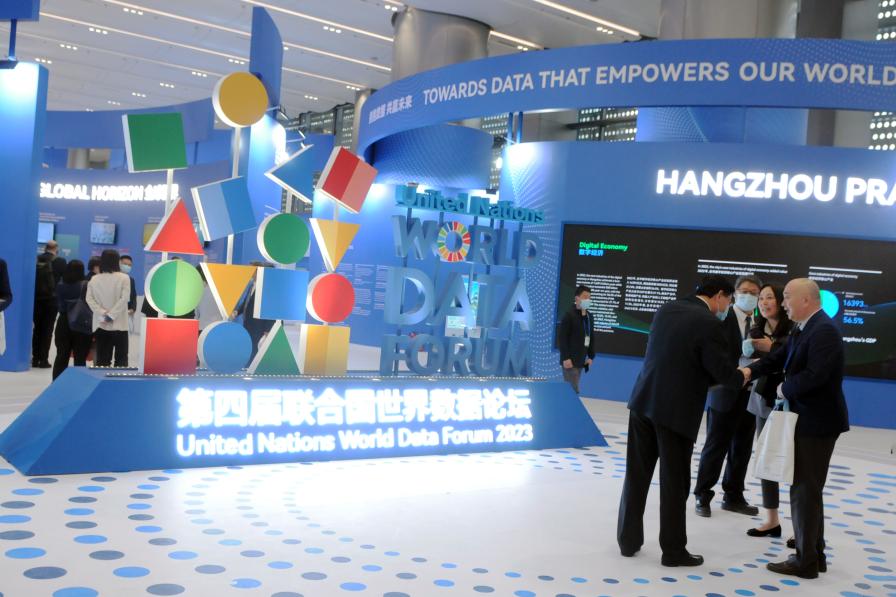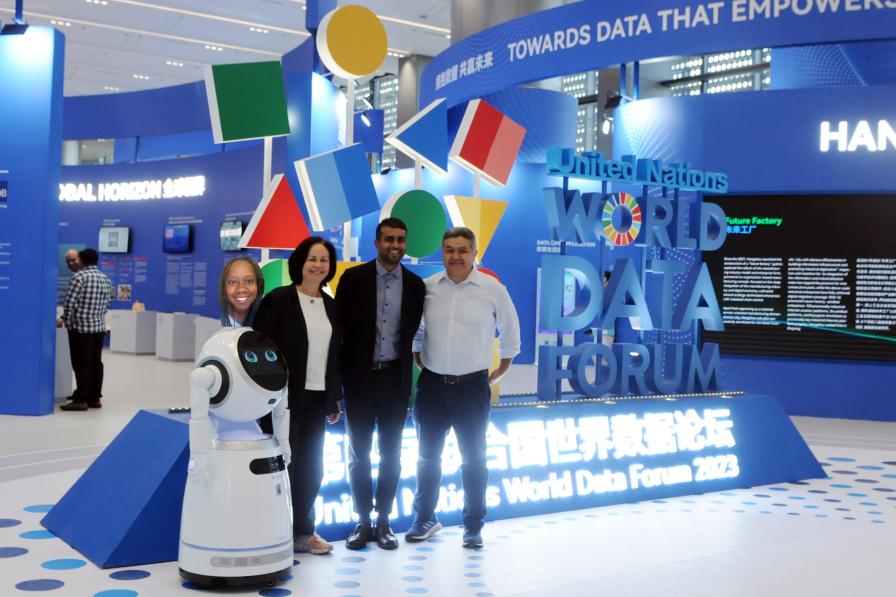The last day of the Fourth UN World Data Forum (UNWDF 2023), proceeded with sustained focus on data that empowers the world. Sessions discussed how data can be applied to combat the “Triple C” crises: COVID-19, Climate and Conflict. The Hangzhou Declaration launched during the closing ceremony, reflected on these crises, but also ways of ensuring the provisioning of high quality, timely, open and inclusive data to meet the Sustainable Development Goals (SDGs). The final day featured two high-level panel sessions, several parallel sessions and a final closing plenary.
High-level Panel: Programme Committee Plenary
This session drew attention to the work of the Committee to oversee the Forum’s program, and their role in deciding upon the thematic areas, the content and format of the Forum, and recommendations on key speakers, data stories, and slogans.
Francesca Perucci, UN Statistics Division (UNSD DESA), emphasized that virtual engagement in the Forum since 2020 has strengthened participation.
Camilo Andrés Méndez Coronado, National Statistics Office (DANE), Colombia, stressed that the fifth World Data Forum to be held in Colombia, will focus on diversity and inclusiveness and ways of building partnerships.
Claudia Wells, Development Initiatives, said that the data community has successfully invited many into the tent, but urged the Programme Committee to focus on finding other tables to sit at.
Xuming He, President-Elect, International Statistical Institute, recommended a greater focus on regional meetings in view of the significant resources required for international gatherings.
Babatunde Abidoye, UN Development Programme (UNDP), noted strong interest in work on spatial data, and the new trends driven by the COVID-19 pandemic.
Nnenna Nwakanma, International Digital Health and AI Research Collaborative (I-DAIR), referred to the “the X factor,” expressed through the greater emotional engagement, artistic interventions, relational approaches, and more politically active discussions.
Parallel Sessions
- Boosting Data Availability on Agricultural Land Ownership from a Gender Perspective which focused on SDG Indicator 5.a.1 on women’s empowerment through ownership and control over assets;
- Global Data Barometer: Measuring the State of Data for Public Good and the Achievement of the SDGs, which focused on challenges and opportunities in applying a system-wide approach to health data;
- A Seat at the Table, which explored ways of engaging with decision-makers to better understand and address data needs for evidence-based policy making;
- Measuring Progress and Reporting Challenges of SDG 16 (Peace, Justice and Strong Institutions), which focused on methodologies and approaches to measure corruption, injustices and discriminations; and
- Integrating Population, Displacement and Geospatial Data in Humanitarian Emergencies, which focused on the critical role of “the right data at the right time” for effective humanitarian crisis response.
During the UN World Data Forum, partners launched the Data to Policy Navigator to assist government executives and policymakers in data-driven decision making. The UN launched a Collaborative on Citizen Data to support collaboration between national statistical systems, academia, civil society, and others engaged in data production and use.
High-level Panel: Emerging Trends and Partnerships to Develop the Data Ecosystem
This high-level plenary focused on how to mobilize data for global priorities, such as climate change, conflict and COVID-19, and to strengthen implementation of the Cape Town Global Action Plan.
Nnenna Nwakanma, International Digital Health and AI Research Collaborative (I-DAIR), said the current data ecosystem needs more engagement of policy makers, women in data, and a focus on mental health.
Karla Yee Amezaga, World Economic Forum (WEF), reported the need to ensure regulations and policies in anticipation of rapidly transforming digital technologies.
Elsa Dhuli, Institute of Statistics, Albania, noted that her country has developed a national strategy for scientific research, technology, and innovation to foster good governance and inclusive investments.
Claudia Wells, Development Initiatives, noted the importance of creative engagement through art and music and the need to ensure that data collection is not extractive but participatory.
Camilo Andrés Mendez Coronado, DANE, Colombia, called for investing in regional-level data initiatives.
Prim Rajasurang Wongkrasaemongkol, ASEAN Data Science Explorer, called for youth empowerment in data about statistics and increased cyber security to protect data from youth that spend over 40% of their time online.
Closing Plenary
Mao Shengyong, Deputy Commissioner, National Bureau of Statistics, moderated the closing session, beginning with a short video recapping the highlights of the Forum, which convened around 1,200 people in-person from 120 countries and regions.
UN Deputy Secretary Amina J. Mohammed, in a video message, applauded the progress achieved since Cape Town in 2017. “Today we see data discussed at a political level, come to understand the value of data as a strategic asset key to making decisions for people and planet,” she said, adding: “Investing in data has never been more urgent.”
Mao Youfeng, Deputy Commissioner, National Bureau of Statistics, China, said his country would develop international data governance standards in line with everyone’s views to overcome the digital divide.
Xu Wenguang, Executive Vice Governor of Zhejiang Provincial Government, recalled the opening message delivered by Chinese President Xi Jinping, noting that advancing global digital governance and international cooperation is required in order to inject new vitality into sustainable development.
Yao Gaoyuan, Hangzhou City Mayor, said the Forum and the Hangzhou Declaration will leave a deep imprint in the history of Hangzhou, reminding participants how digital technology has become “the new card for Hangzhou to present itself to the world.”
Francesca Perucci, UNSD DESA, announced the Hangzhou Declaration as an accelerator of the Cape Town Global Action Plan, and presented a video highlighting its main objectives.
Mao Youfeng, Deputy Commissioner, National Bureau of Statistics, CHINA, presented a gift of a traditional painted scroll called “The Beauty of Hangzhou” to the hosts of the fifth UN World Data Forum, to be held in Colombia.
Leonardo Trujillo Oyala, National Statistical Office, Colombia, thanked the outgoing hosts and welcomed participants to the city of Medellín in November, 2024.
Stefan Schweinfest, Director, UNSD-DESA, stated that over 10,000 active visitors attended the Forum online, with over 100 sessions and 400 speakers. He closed the meeting at 6:22 pm CST.
The IISD summary of the Forum is available in HTML and PDF format.
All ENB photos are free to use with attribution. For the UN World Data Forum 2023, please use: Photo by IISD/ENB | Diego Noguera
To receive free coverage of global environmental events delivered to your inbox, subscribe to the ENB Update newsletter.
